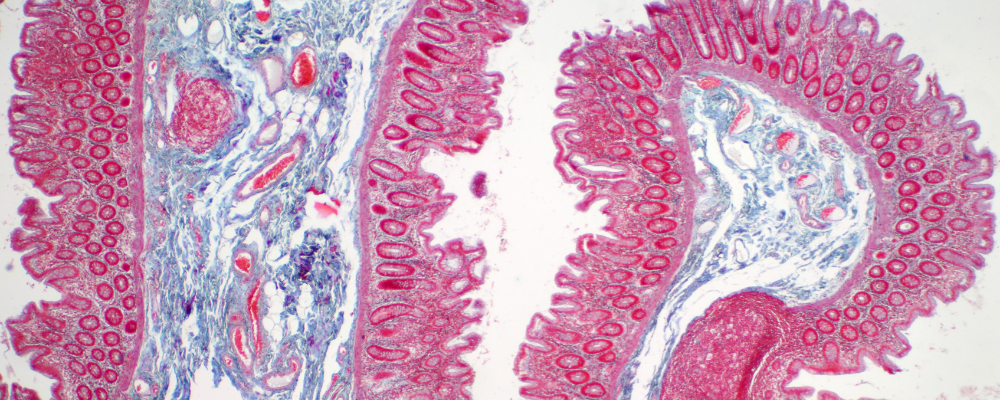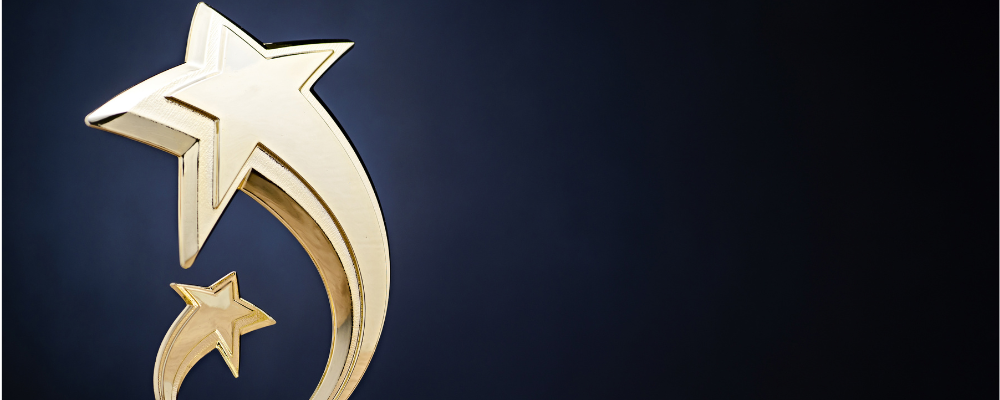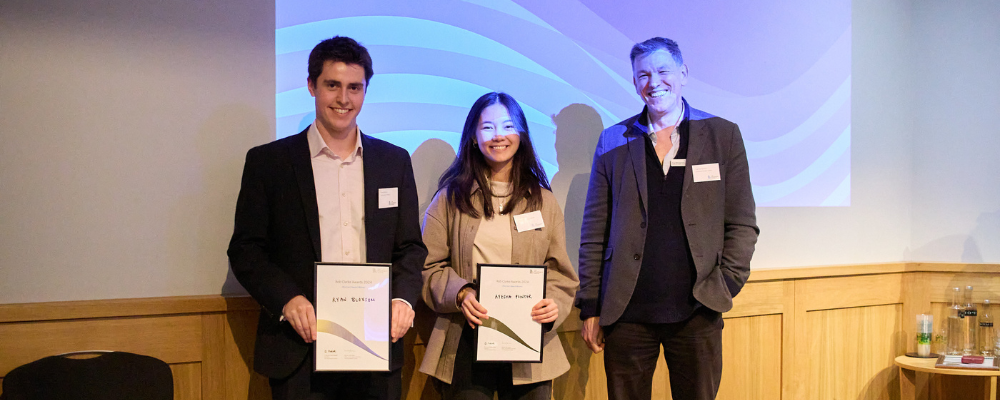
Award spotlight with Ayesha Pointer (2024 joint Rob Clarke Awards winner)
Ayesha Pointer, The Francis Crick Institute, UK
“My project is focused on understanding how the brain transforms visual information into a goal-specific motor command, for example, making a guided movement of your hand to catch a ball.”

At our Member Forum held on 29 November 2024, Ayesha Pointer (The Francis Crick Institute, UK) was awarded 2024 Rob Clarke Awards winner, jointly with Ryan Bloxsom (University of Oxford, UK). The award recognises excellence in undergraduate physiology projects.
Ayesha presented her poster titled ‘Flexible motor strategies by mice during the pursuit of moving visual targets’. Since the excitement of the event at The Royal Society, we followed up with Ayesha to find out more about her research project and presenting to a judging panel.
In this award spotlight, Ayesha talks about neuroscience, confidence and pursuing a PhD.
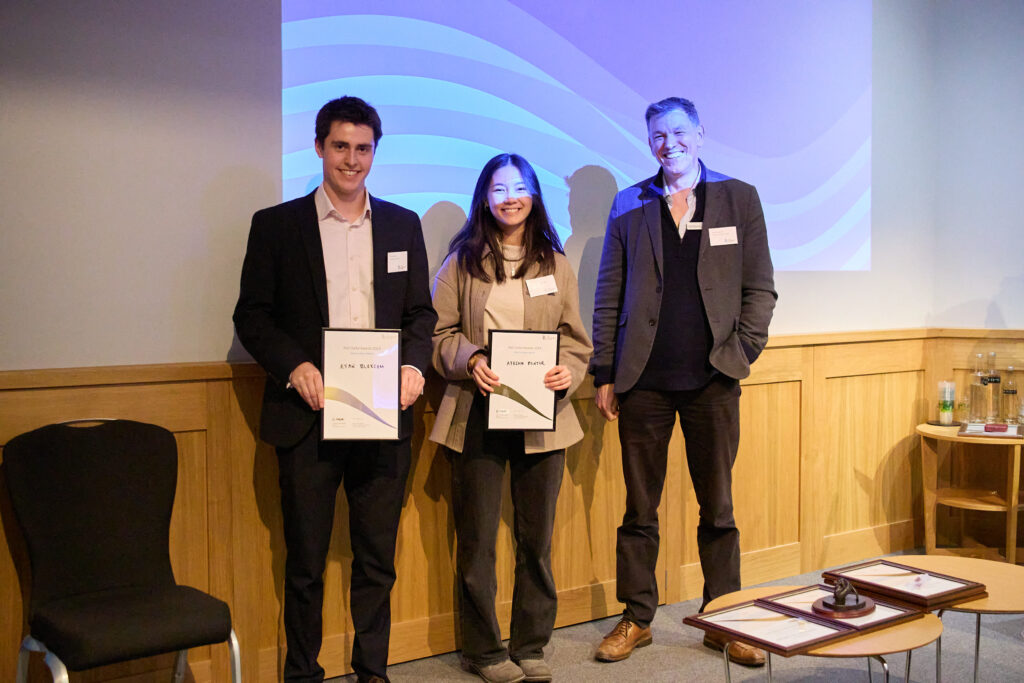
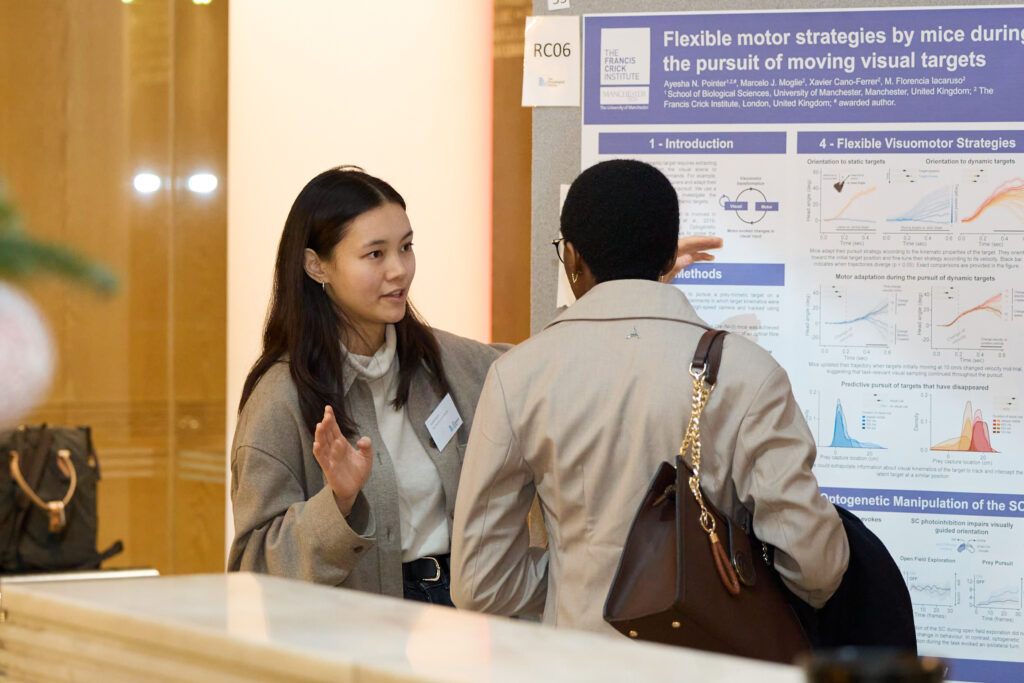
What topic did you choose for your project?
My project is focused on understanding how the brain transforms visual information into a goal-specific motor command, for example, making a guided movement of your hand to catch a ball. Furthermore, this project also aims to understand how this visual to motor transformation adapts when visual information changes. To model this, we study how mice pursue moving targets using a virtual paradigm to present visual stimuli.
What inspired your interest in this?
I was initially drawn to the project from an experimental perspective, having never worked with mice or the genetic methods used to manipulate the activity of neural circuits. At first, I was intimidated by calibre of science performed at the Francis Crick Institute. However, as my time in the Iacaruso Lab progressed, my interest in the field of systems neuroscience grew through scientific discussion and exploration, as did my confidence as a scientist.
What did you enjoy most about the project?
The highlight of my project was a series of optogenetic experiments performed at the end of my time with the Iacaruso Lab. This largely independent study was the exposure I needed to solidify my passion for research and confirmed my long-term interest.
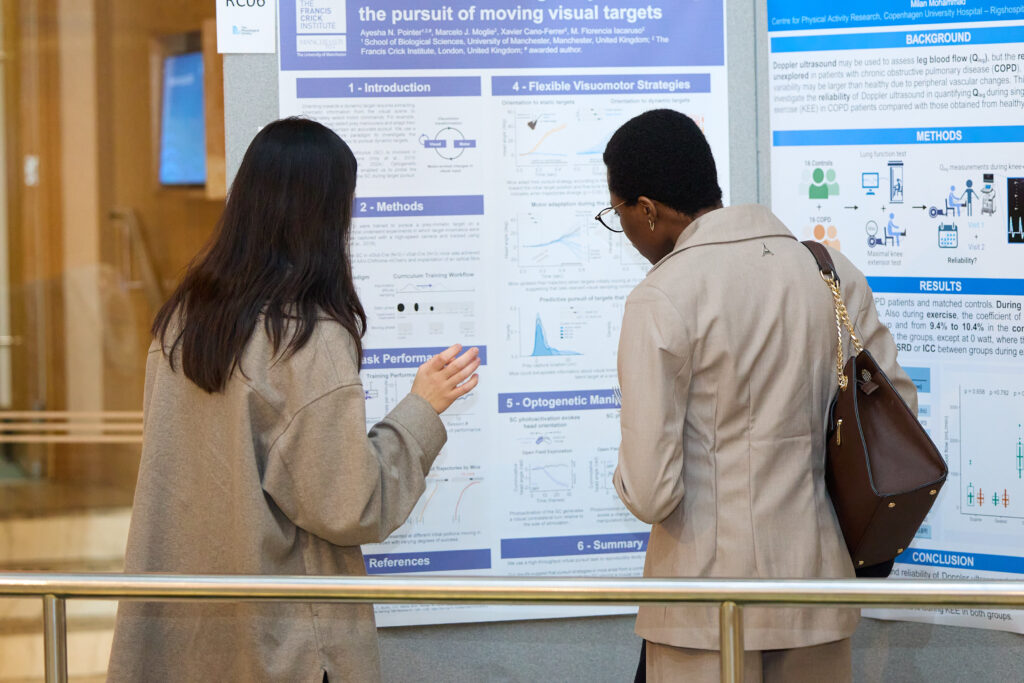
What was your experience of presenting your research?
The poster presentation was a wonderful experience. Although the judging sessions were short, with just 15 minutes to present and discuss questions about the poster, I had stimulating conversations with members of the judging panel about my research and its potential applications.
The poster presentation was also an excellent opportunity to meet other likeminded students at a similar stage in their careers. Overall, I’m grateful for the chance to present and discuss my work with such a diverse audience, gaining valuable insights from different perspectives.
What are you working on now?
My Rob Clarke Award project, the science and my colleagues all greatly inspired me to pursue research in the field of systems neuroscience. Since completing my undergraduate degree, I have embarked on a PhD in the lab of Florencia Iacaruso, focusing on the circuit mechanisms underpinning visually guiding orienting responses. My PhD project builds on the work I began during my undergraduate studies, making many of the skills I acquired directly transferable. I am excited to continue learning about this field, and I look forward to the experiments and scientific discussions to come.
Read our news article for a summary of the presentations and to see all 2024 Rob Clarke Award finalists.




